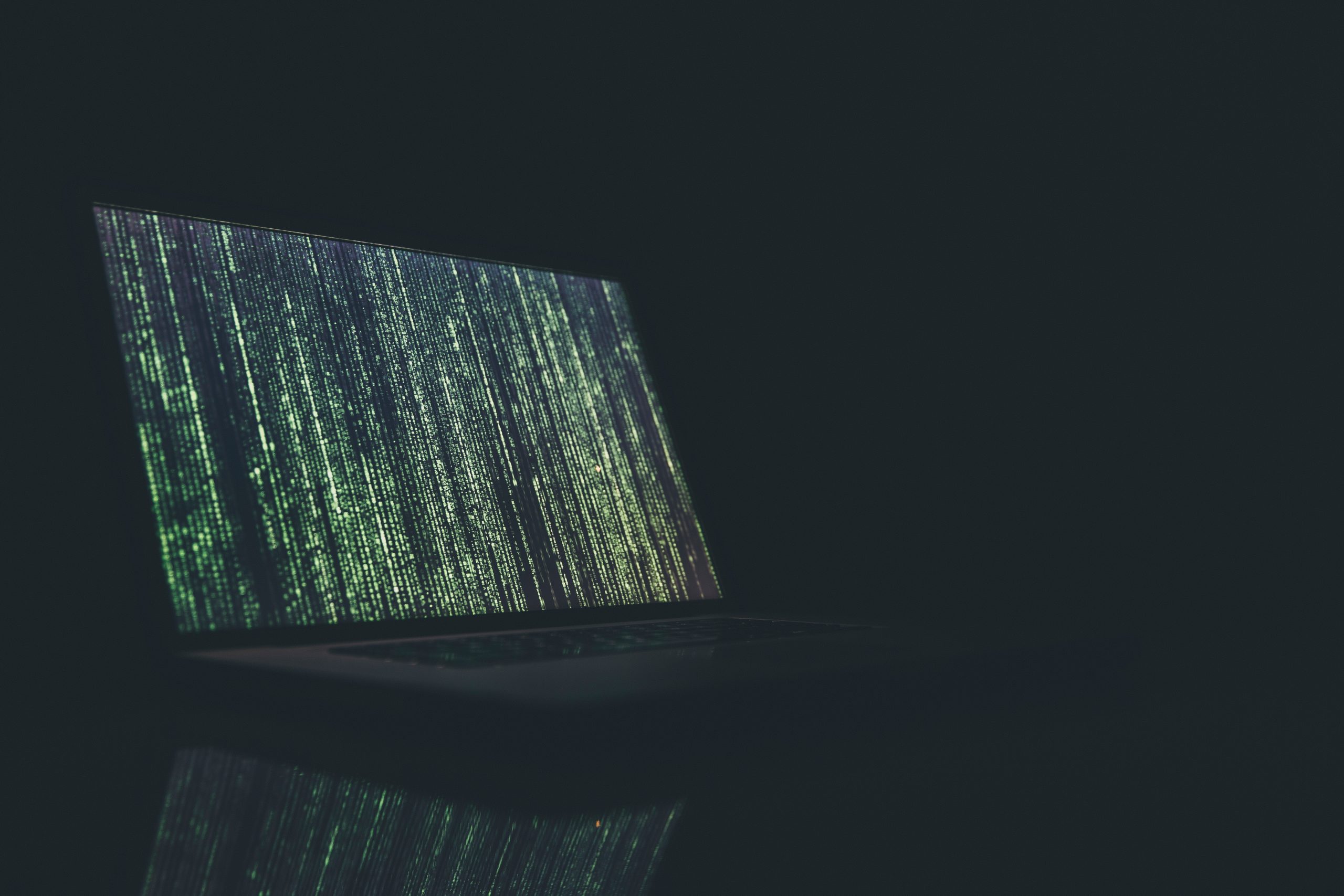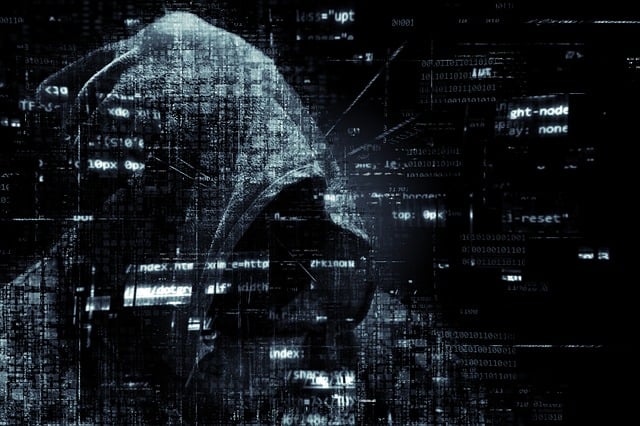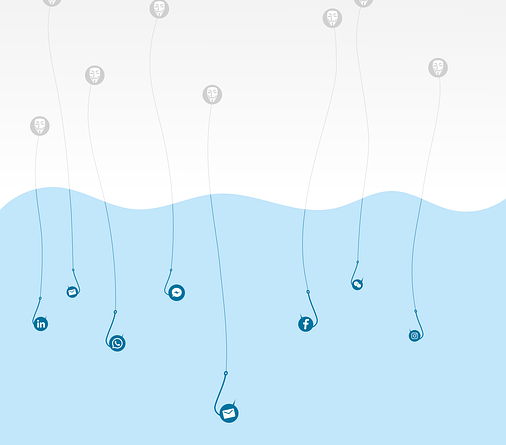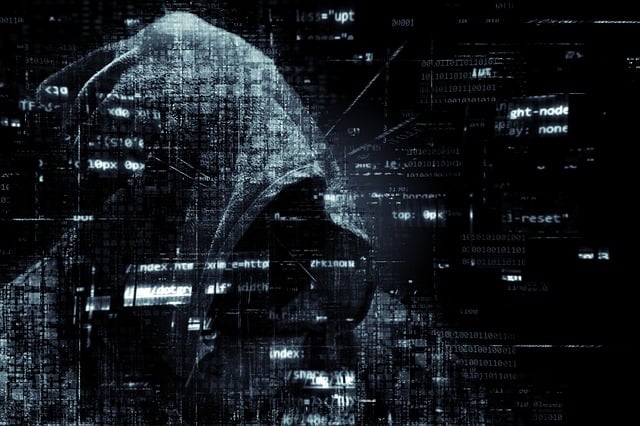In 2019, nearly one million U.S. residents aged 16 and older were victims of cyberstalking, and these are only the known cases. With the rise of the internet, stalking someone has become easier than ever. Celebrities like Kim Kardashian have been subjected to a barrage of cyberstalking in the past year, and the more time people spend online, the more they expose themselves to danger. Cyberstalking is a broad term, which can range from liking someone’s old Facebook photos to installing stalkerware on their phone. This has been recognized as a serious threat, and experts have provided advice on prevention. In some cases, the perpetrator starts as a friend or romantic partner. This was the case in the Dungeons and Dragons stalking case, where a group of friends were playing on Discord and one of them started to become increasingly harassing. The group set boundaries, but the individual continued to send them long, massive messages.
Recently, a group of people experienced cyberstalking from a former friend who had become obsessed. Their solution to this was to block the perpetrator on all social media accounts, however, this only lasted a moment before they realized that the person had created new accounts and was still cyberstalking them. To combat this, the group removed their presence from the internet by making their social media accounts private. It is important to let as many people as possible know about the situation and who is doing the stalking, and in some cases it may be necessary to contact law enforcement. Cyberstalking can easily turn into real stalking and even in-person assaults, and during the pandemic experts have observed an uptick in stalkerware cases reported by domestic violence victims. Stalkerware is a type of app that can be installed on any device and sends data such as GPS location and text to a specific email address. Coalition against stalkerware groups are attempting to spread awareness and information to help victims.
Cyber Stalking On The Rise
Cyber stalking is on the rise due to an increased number of people working from home. Cases of cyber stalking can vary in severity and scale, with one of the most chilling examples being an aggressive campaign carried out by former eBay employees. It is important to stay informed on cyber stalking and cyber security as technology advances and more information is put online, as this increases the potential for victims of cyber stalking or other attacks. If you believe you are being cyber stalked, there is no one-size-fits-all solution, however there are resources available to aid in the process. It is important to stay safe online.
Cyber stalking is a growing problem that affects people of all walks of life. From constant spamming and commenting on old photos to feeling “followed” online, anyone can be a victim of cyberstalking. Join us as we explore unsettling dungeons and dragons stalking case and discuss how to protect yourself from cyber stalking online.
00:00 Intro
00:23 What is cyber stalking and how common it is?
01:17 Real life cyber stalking story (D&D stalking case)
05:03 How to combat cyberstalking?
06:12 Stalkerware
07:13 Stalking by strangers
08:56 Outro
A Deep Dive into Cyber Stalking and How to Spot It
With the rise of technology, cyberstalking has become an increasingly common form of cyberbullying and online harassment. The digital age has also made it easier for cybercriminals and online predators to exploit and victimize unsuspecting individuals. In this blog post, we will take a deep dive into cyberstalking and how to spot it. We will discuss how to protect your online privacy from cyberstalking, how to protect yourself against cyberstalking during the pandemic, and the rise of cyberstalking and how to protect yourself from online threats. By the end of this post, you should have a good understanding of cyberstalking and how to spot it.

Protecting Your Online Privacy from Cyberstalking
Cyberstalking is a serious and growing threat to online privacy. In 2019, nearly 1 million U.S residents aged 16 and older were victims of cyberstalking, which is a threat to online privacy that we must be aware of and prevent where possible.
Social media can enable people with fame and resources to track in cyberstalk their former partners or persons they are connected with, such as happened in the public divorce of Kim Kardashian and Kanye West this year. Cyber stalking is a broad term including behaviour like liking all your old photos on Facebook, personal email stalking or someone installing stalkerware on your phone to follow you activities that have been recognized by society as serious threats instigating conversations on prevention advice from experts.
Reddit horror stories have outlined typical experiences of digital abuse; beginning when perpetrators enter relationships posing as friends or romantic partners before escalating into harassment through messages sent via social media/e mail etc even after boundaries are set by those being stalked highlighting the capabilities enabled by technical Savviness behind a keyboard out of reach from others present in person.. As long as you’re not famous or connected in some way, cyber stalkers will continue to search for ways to hurt you. So it’s important to take steps to protect yourself from this threat now. Here are some tips for doing just that:.
1) Be aware of the dangers posed by social media: Social media can be a great way to connect with friends and family, but it can also be dangerous if used incorrectly. Be sure to limit the amount of time you spend on social media each day, and be especially careful about what information you share online.
2) Keep your personal information private: Don’t share too much personal information online, especially if it’s not necessary for day-to-day activities. If someone asks for your address or other personal information, don’t provide it!
3) Use secure passwords: Make sure your passwords are strong enough so no one can easily guess them (and make sure you change them regularly). And don’t use easy-to-guess words like password or 123456.
4) Stay up-to-date on security updates: Make sure your computer has the latest security updates installed – this will help protect against viruses and other malicious software. And always keep an eye out for warning signs that something might be wrong – if something feels strange or creepy, don’t ignore it! Report any suspicious activity right away so you can get help protecting yourself from cyber stalking.
Protecting Yourself Against Cyberstalking During the Pandemic
Cyberstalking is a serious crime that can have devastating consequences for its victims. Anyone can be a victim of cyberstalking, which means that anyone – regardless of race, religion, or social status – can be targeted and harassed online. Cyberstalking is a type of harassment that takes place through the use of electronic media, such as email, social media, and phone calls.
Victims of cyberstalking should always seek help from family, friends, and law enforcement for protection. Cyberstalkers often use technology to stalk their victims undetected. This makes it difficult for victims to detect the stalking and to take preventative measures such as making their social media accounts private in order to protect themselves from stalkers who may be accessing these accounts for unwanted access or contact with the victim.
There are several tools available to cyberstalkers and their victims during the pandemic. One example is Stalkerware apps; these are apps that can be stealthily installed on any phone or device and send all data to a specific email address without the user’s knowledge or consent which can make it difficult to detect them. Coalition against stalkerware groups are working hard to spread awareness about this issue so victims can find tools they need for protection against cybercrime offenders.
Cyber Stalking on the Rise: Protect Yourself from Online Threats
Cyber stalking is on the rise, and it’s a serious threat to both personal and professional security. Cyber stalking is defined as any online behavior that threatens or harasses someone. This includes sending threatening messages, tracking someone’s movements, and creating threatening content. Cyber stalking can be very frightening for those who experience it, and it can have a significant impact on their day-to-day life.
One of the reasons cyber stalking is on the rise is because more people are working from home these days. With fewer barriers to entry, stalkers have more access to their victims than ever before. Stalkers may also target people who they know well, such as family members or friends. They may send them threatening messages or create threatening content around them in an effort to scare them into submission.
Legal standards for cyber stalking are similar to those used in real life law. Victims need enough evidence to make a compelling argument in order for judges to issue subpoenas or warrants. This means that many cases of cyber stalking go unreported due to the lack of concrete evidence available to victims. However, by staying informed about the latest news and subscribing to informative channels for advice on what actions can be taken if you feel threatened online, you can help protect yourself from this serious threat.
How Can A VPN Help Avoid Cyberstalking?
Most of us use the internet on a daily basis. We use it for communication, entertainment, and gathering information. Unfortunately, there are those who do not have our best interest at heart and use the internet for malicious activities such as cyberstalking. Cyberstalking is a form of online harassment in which someone uses the internet to stalk another person. It can be anything from sending malicious messages or emails to tracking your movements through GPS or using spyware to monitor your activity.
If you’re concerned about being targeted by cyberstalkers, one of the best ways to protect yourself is with a virtual private network (VPN). A VPN such as NordVPN helps mask your IP address and encrypts your connection so that third parties cannot access it. This means that even if someone were able to track you online, they would not be able to see your actual location or gain access to any of your data.
Using a VPN also adds an extra layer of privacy when browsing websites, streaming content, and downloading files. Your ISP will only see encrypted traffic rather than the actual sites you visit or data that you download. Even if someone monitors your web traffic while connected to a public WiFi hotspot, they won’t be able to decipher your communications with a VPN in place.
A good quality VPN should also have additional features designed to keep you safe while on the internet such as automatic kill switch technology which immediately cuts off all connection attempts if the server becomes unavailable. The VPN provider should also offer DNS leak protection which blocks requests sent via unsecured networks so that no one can view them nor trace them back to you.
Overall, using a quality virtual private network such as NordVPN can provide an effective way of protecting yourself from cyberstalking threats and making sure that no one can access any of your personal information online without explicit authorization from you..
Conclusion
It is clear that cyberstalking is a serious issue, and one that we must take steps to protect ourselves from. By understanding the different strategies used by cyberstalkers, such as social media stalking, personal email monitoring, and stalkerware apps, we can better equip ourselves with the knowledge and tools needed to stay safe online. We must also work together to raise awareness of this issue and ensure that victims of cyberstalking get the help they need. With the right knowledge and resources, we can all take steps towards a more secure online environment for everyone. Take action now to protect yourself from cyberstalking: install security updates on your devices regularly and be aware of what information you are sharing online.
Read Get Hitch for all your AI, VPN, tech and cyber security news and information








